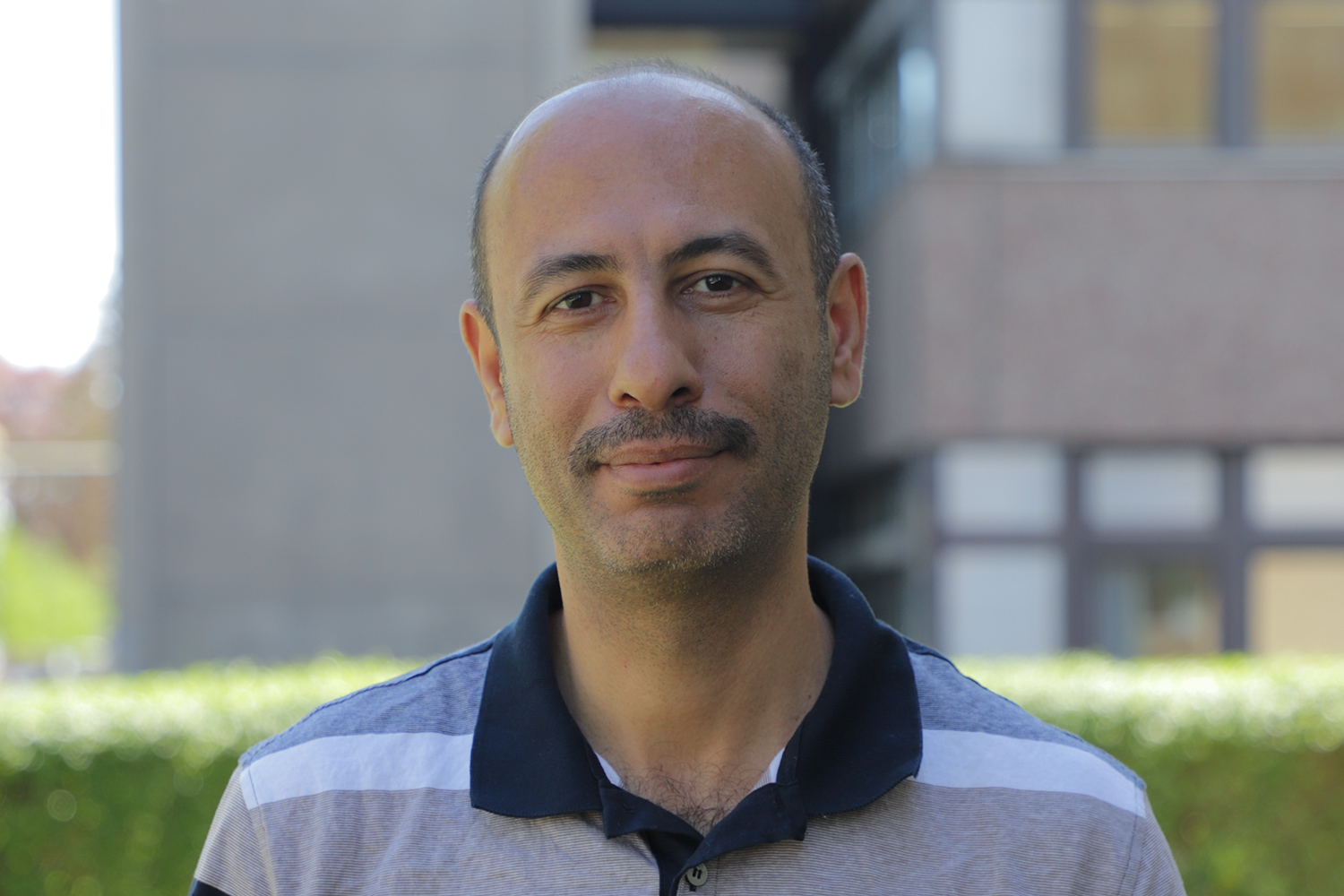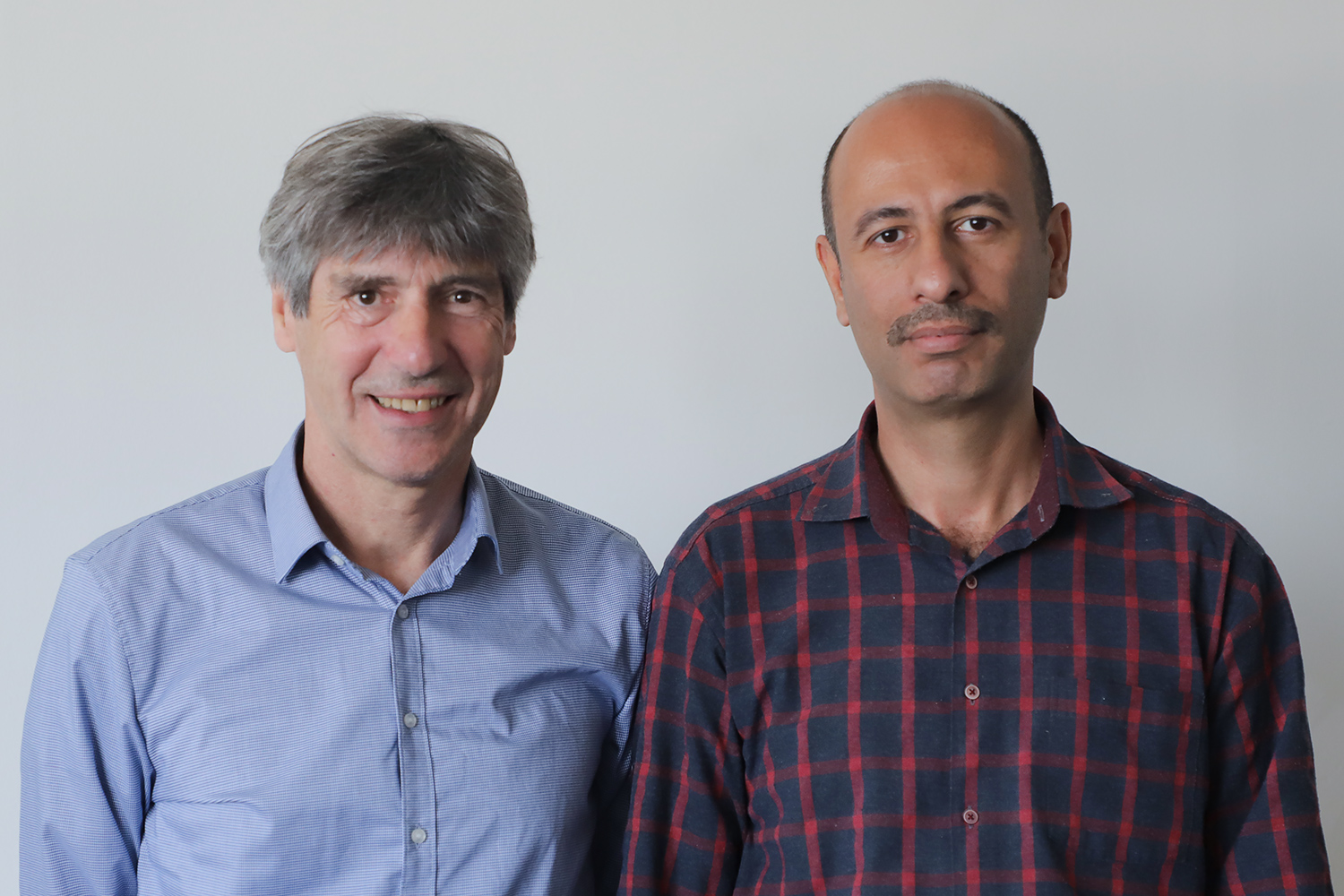Return to science Philipp Schwartz Initiative supports refugee researcher at TU Braunschweig
Since December 2018, the Iraqi scientist Dr. Adil Khairullah Salman has been researching in the department of Soil Science and Soil Physics of the Institute of Geoecology at the Technische Universität Braunschweig. The stay of the endangered researcher is made possible by a scholarship of the Philipp Schwartz Initiative. The initiative awards grants to universities and research institutions enabling them to support endangered foreign scientists for 24 months with a full-time scholarship.

Dr. Adil Khairullah Salman is from Iraq and is spending two years researching in the department of Soil Science and Soil Physics at the Institute of Geoecology at TU Braunschweig. Picture credits: Anna Krings/TU Braunschweig
Together with Professor Wolfgang Durner, Vice President for Studies and Teaching and Head of the department of Soil Science and Soil Physics at the TU Braunschweig, Adil Khairullah Salman applied for the Philipp Schwartz Initiative. He is one of 35 scientists who are being funded nationwide in the fourth round of the fellowship and the only one in Lower Saxony. “The scholarship is a chance for my family and me to make a fresh start. And for me it is also a ´Comeback´, a return to science,” says Salman. The funding is initially running for two years, an extension for another year is possible. Professor Durner sees advantages for both sides: “We are helping Dr. Salman. Here at the TU Braunschweig, he can take up his previous research. We benefit not only from his expertise, but also from his practical experience in the field of soil science”.

Have joint research interests: Professor Wolfgang Durner, Vice President of Studies and Teaching and Head of the department of Soil Science and Soil Physics and guest scientist Adil Salman. Picture credits: Anna Krings/TU Braunschweig
Joint research interests
In the department of Soil Science and Soil Physics, the visiting scientist will be researching how soils in dry areas need to be irrigated in order to achieve optimal and sustainable harvest results with scarce water resources. The challenge: Due to climate change, human influences and low precipitation, salt accumulates in the uppermost layer of the soil and makes it unusable for agriculture. Salman has already dealt with this topic in his home country, Iraq. He studied agricultural sciences, earned his doctorate in soil physics and taught as a lecturer at the University of Anbar in Ramadi, Iraq. Due to the war situation in Iraq, Salman had to leave the country at the end of 2015 and fled to Turkey. “I have been researching and working at Anbar University since 2005. It was very unusual for me to suddenly no longer be part of scientific life,” he reports. In order to apply for the Philipp Schwartz Initiative scholarship, Salman sought contact with Professor Durner, as the research priorities of his department matched Salman’s professional experience well. “Dr. Salman is also conducting research in an area that interests me personally,” adds Professor Durner.
Like in a big family
After Salman’s arrival in Germany, many formalities had to be clarified and an apartment had to be found. “Professor Durner and his secretary Ines Andrä supported me. The International Office arranged contacts to schools and kindergartens for my children. I am very grateful for this help,” says Salman. Now he is concentrating on his research: implementing ideas, writing applications, publishing publications. He particularly likes the friendly and open atmosphere at the TU Braunschweig. “Like in a big family,” he says laughingly.
